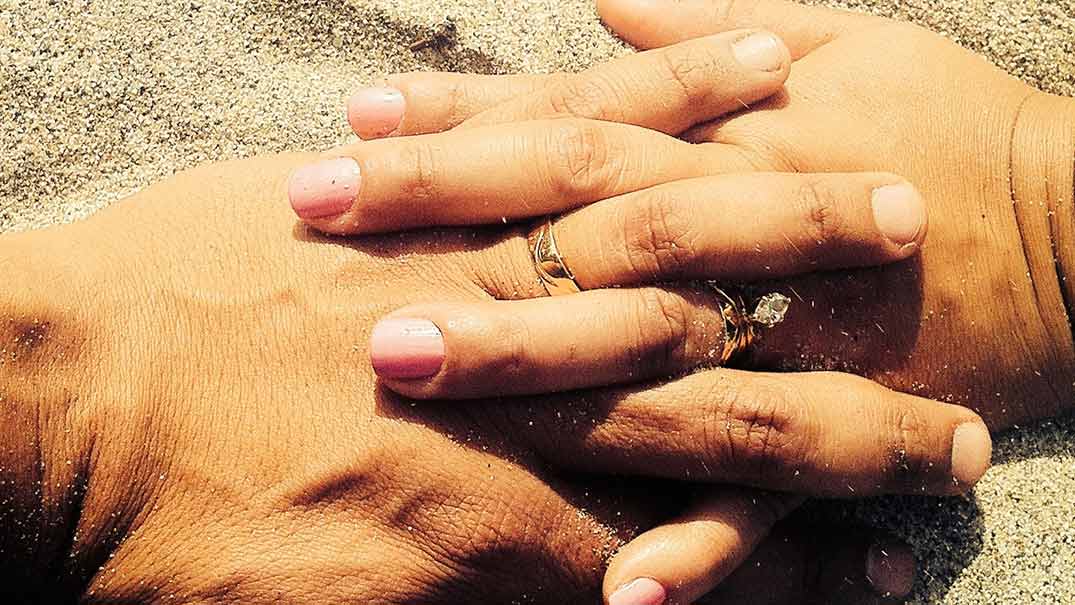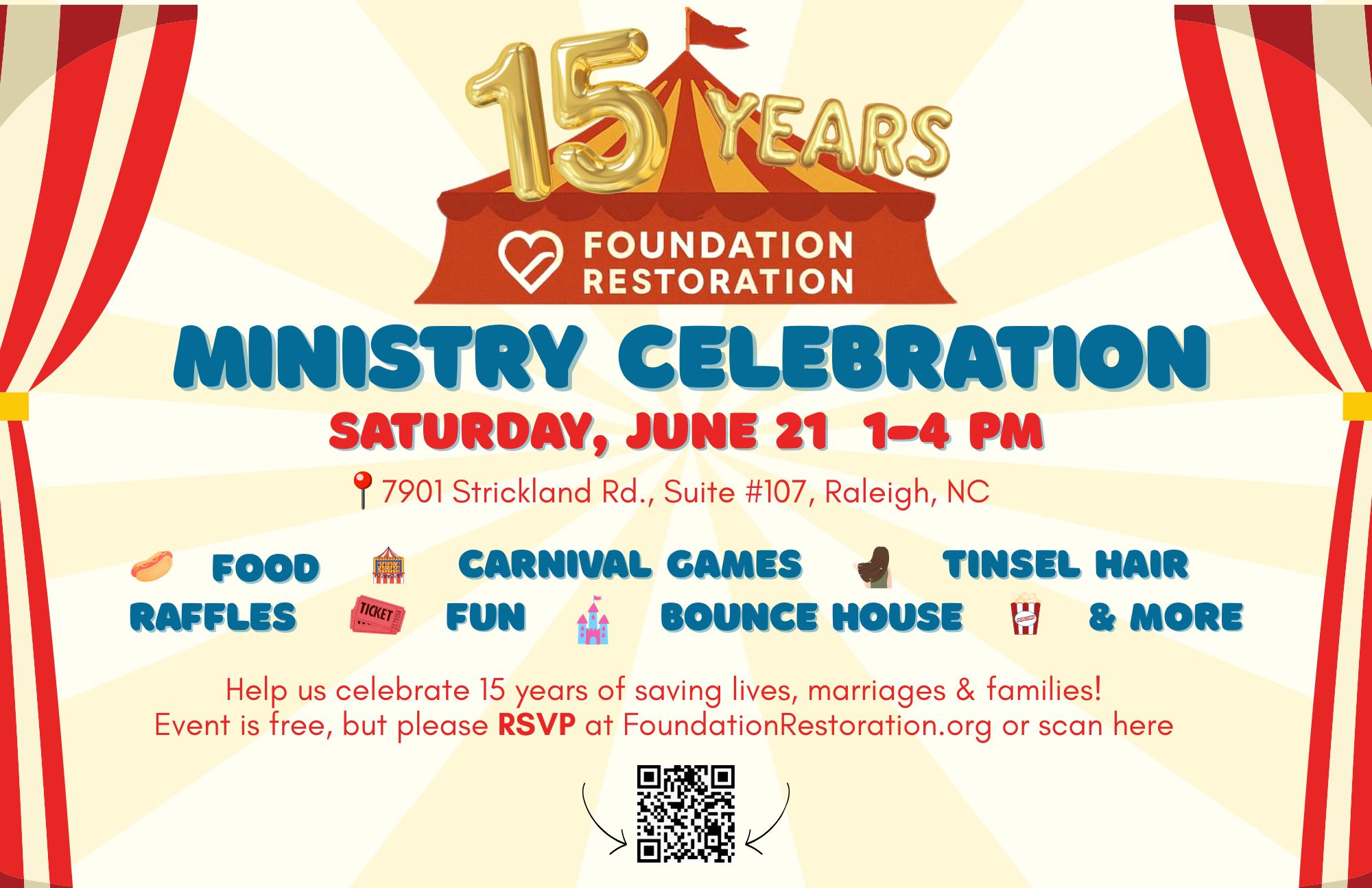By Dr. Jeff Klick
Most of us struggle with our past. We have failed, sinned, and generally messed up somehow someway. While this struggle is tough enough for our own minds to deal with, it is compounded when we marry. “The two shall become one,” is a Biblical truth. Our reality often falls short of this statement.
Two imperfect people stand before someone like me and boldly state their vows. These promises are made in good faith, and usually contain words like, “love, serve, honor, faithful, and forever.” Life experience, and most statistical studies, confirms the truth that these promises are not kept.
How do two people who sincerely love one another go from stating these vows lovingly looking into each other’s eyes to divorce? At one time just being together was enough to bring joy to the heart and a smile to the face. A gentle touch on the hand would send shivers down the spine. Two lovers couldn’t wait to be together, but now, they can’t wait to get away from each other. What happened?
There are of course many reasons, but the one I want to focus on deals with how we hear one another. Many times, as two people live together in marriage, the way we listen to each other changes. I am not talking about the ability to discern decibels, but how we listen to one another.
Hurts and wounds are inevitable in marriage. Disappointments, harsh words, unkindness, thoughtlessness, and selfishness will invade every marriage at some time or another. In fact, I believe it is nearly impossible for two people to live together without irritations arising. What we do with those irritations, hurts, wounds, and disappointments will have a direct impact on our hearing.
When we are on the receiving end of a hurt or harsh word from our spouse, we have a choice to make. This choice will impact more than just the current situation. In fact, our choice will have the potential to affect almost every future conversation we have with our spouse. We must choose wisely.
If we allow the hurt, harshness, selfishness, or any other less than desirable behavior of our spouse to reside in our heart and fail to deal with it, our hearing becomes impaired. Whenever we have the next conflict or discussion with our spouse, the unresolved issue interferes with our ability to hear clearly.
We will begin to hear our spouse through the filter of that unresolved issue. We will soon begin to assign motives to them, interpreting what they say through that hearing aid, and in most cases, it will distort the current conversation.
We soon begin to use words like, “always,” and “never” in our discussions. Typically we will become defensive and assume that our spouse is attacking us, even when they are not. A simple question like, “Did you get the laundry finished today?” can escalate into a full scale war of words.
The one being asked the question allows a rush of past wounds and thoughts to be attached to the motives of the one asking. “They think I am lazy. Why are they always criticizing me? They don’t appreciate me for all I do but always have to point out where I fall short.” etc.
While these thoughts or ones like them rush in, the one asking the question simply wanted to know if a shirt was washed. A simple question launches an argument and additional hurts and wounds. If left to fester, every conversation after this one now includes all the previously received wounds and is further distorted by the laundry discussion. When the next issues arise, even more communication ground has been lost.
We have a listening problem, but really it is a heart issue. We simply don’t know how to communicate to our spouse our hurt or to learn to let go of offenses. We fail to deal with the issues when they arise, and the cost is huge later on. How many couples have walked away from one another in anger because they couldn’t talk any more?
- “You don’t understand.”
- “You just don’t get it.”
- “Why can’t you see this?”
- “If you loved me you would understand”
- “I can’t talk to you anymore.”
What really happened is an ear buildup of hurt wax. We need to clean out our ears so we can hear the one we love without all that buildup hindering what is really being said. We need to be in the current conversation without allowing all the previous ones to distort this one. This is not easy, but we must learn to deal with our hearing loss if we hope to avoid becoming another statistic.
There are several ways to deal with a wound, hurt, or disappointment other than allowing it to simmer into anger and bitterness. We can simply overlook it. Proverbs 19:11 states that it is a man’s (or woman’s) glory to overlook an offense. We can choose to assume the best of our spouse instead of the worst. We can assign them good motives instead of evil ones. We have that choice.
If we can’t overlook the offense, we can continue the discussion. We need to ask what I call “The next question.” When your spouse says something to you that rubs you the wrong way, before reacting, make sure you understand what they actually meant by what they said. For example ask: “This is what I heard you say, is that what you meant?” You both might be surprised by the answer.
Another technique is to not react to the reaction of your spouse. If you ask a question and get some surprising, hostile response, try to figure out what caused it. Something is going on. There is something not right and arguing won’t help. Loving, caring discussion often will. Rarely do we have all the information in any given situation. Not reacting to the reaction will help calm down the reaction.
Remember at one time you couldn’t wait to be with this person. You longed for the day when you could spend the rest of your life together. You wished your time talking, touching, and simply being together would never end. Something changed. What was it? Almost always the answer involves communication based problems, and hurt infected ears. Maybe we all just need some spiritual Q-Tips to help us clear up some of our hearing loss. It can’t hurt, and it might just help.
Copyright © 2014, Foundation Restoration. ALL RIGHTS RESERVED. No reproduction allowed without written permission from Foundation Restoration and/or the author.






Leave A Comment